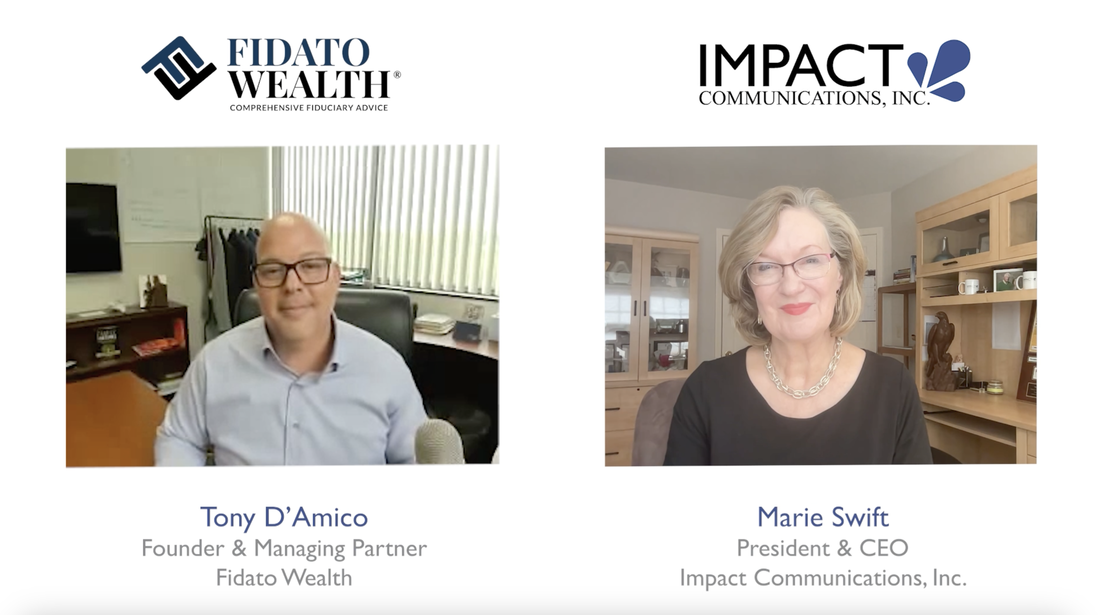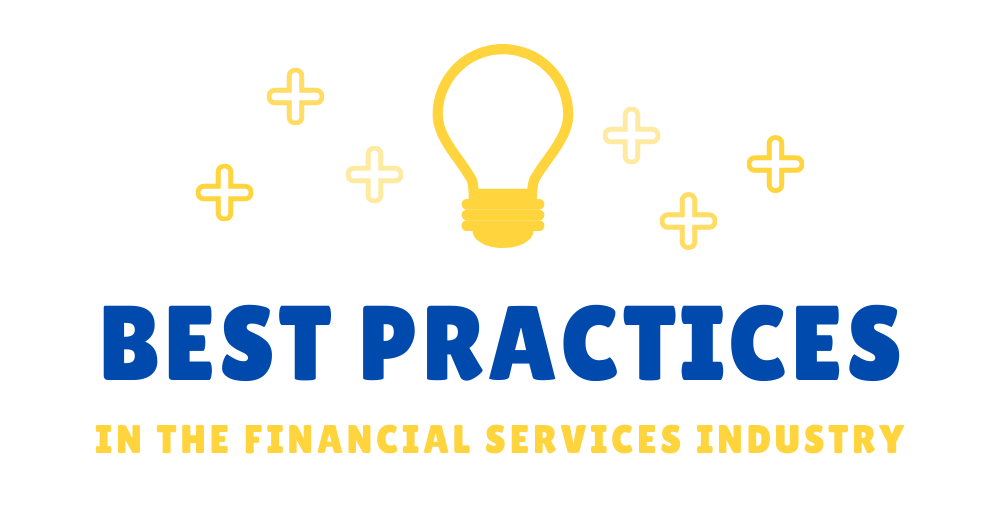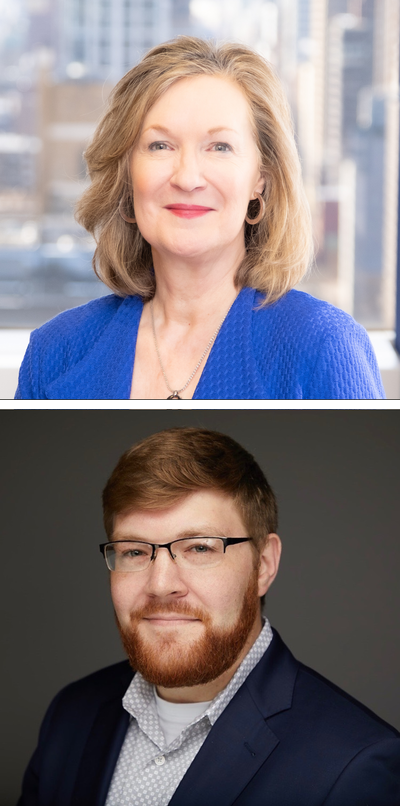|
In this Swift Chat, Marie Swift speaks with Tony D'Amico, Founder and Managing Partner of Fidato Wealth, an award-winning SEC Registered Investment Advisor (RIA) based in Ohio, about the journey of building an admirable firm that stands out as the RIA of choice for both clients and talented professionals.
From the challenges faced in attracting the right talent to the evolution of the firm's culture and processes, Tony provides valuable nuggets of wisdom for those navigating the complexities of the financial services industry. Discover the milestones, the focus on comprehensive wealth management, and the commitment to servant leadership that set Fidato Wealth apart in this illuminating discussion.
Learn more about Tony and Fidato Wealth at https://www.FidatoWealth.com We're attracting that advisor who wants to be part of a boutique wealth management firm that isn't controlled by impatient private equity money. We are owned by the partners only, and we have this boutique feel, and I think that’s how the RIA industry was and still is for the most part. But we're having some folks reach out to us at larger firms that they miss that feel of that RIA culture of being boutique." Transcript of Conversation
Marie Swift: Hello, everybody, and welcome back to another great Swift Chat. I'm Marie Swift, your host. I'm joined today by Tony D'Amico of Fidato Wealth. Tony, you and I have been having some great conversations about this thing called becoming the RIA of choice. In fact, you've built an admirable firm. You're in Ohio, and you’re a Fiduciary financial planning and wealth management firm. So, I'd love for our listeners and viewers to hear how you have done that and how it is helping you recruit the right talent and get the right kind of clients for your firm.
Tony D'Amico: Yeah, that's the million-dollar question, right? So it's taken many years. There are definitely some key thresholds that we've crossed and things that we've been successful with as a firm, which has allowed us to become, I would say, the RIA of choice for talent. It's interesting we've added three positions this year, and I think this stems back to about four years ago now, around October 2023. About four years ago, we lost a team member, and it was a bit unexpected. Their goals had changed pretty drastically, and there had been a lot of open communication and dialogue to help that person on their career track. But their goals changed, and those goals weren't communicated to us. So whenever you have somebody that doesn't work out, I feel like you have to take ownership of it and learn from it. At that point in time, we had some great stuff in place, I would say a good benefits package, we had a great compensation plan. Then, our processes were decent, but they needed to be much more repeatable and manageable. So we took stock of where Fidato was at and how do we take this and be the absolute best firm? From a cultural standpoint, a flexibility standpoint, and a values standpoint. Our number one value is servant leadership, serving others in their best interests without the expectation of anything in return. I feel like that's the key to business and the key to life. And yeah, we spent quite a bit of time. So we took that opportunity to take our benefits plan to the highest level possible as far as flexibility with time off and other aspects of it and making sure that our benefits plan has no gaps. So I think that was an important piece. We also had a compensation plan that I believe was put together by one of the best in our industry, and we also had a path to equity, which was previously laid out, but we went a step further with it and reintroduced that. I think those things really helped. The focus on process, making someone's job, I would say, more manageable, was key. So, I don't know if it was psychological. I think it was part psychological but also part having some of these structural things in place. But for whatever reason, the talent we've attracted going back four years ago has been off the charts. So we're really fortunate to have attracted some incredible advisors, some incredible folks in client service. Recently, this year, we hired a managing director and chief compliance officer who has been in the industry for quite some time. He was a partner at a firm for nine years; he has worked for UBS and the Securities and Exchange Commission. We're really fortunate that we have a great team, so that's a little bit of the history. I think it goes back to each time that you have a setback; how do you flip it and make your company the best that you can? I'll pause here after this. I've learned that you want to do everything you can to give people an opportunity to grow, learn, make an impact, have a voice at the table, and enjoy the people they're around. But it's also inevitable that not everyone stays. I'm not foolish enough to think that everyone stays. That's the goal is that the vast majority of people stay for the long term. But sometimes you outgrow talent, sometimes things happen, and sometimes people develop significant relationships in a different state. So I think you always have to be prepared. Swift: That's really interesting. As a fellow business owner myself, I'm listening, and I'm picking up some great kernels, some great golden nuggets. If I'm getting this correctly, you say that becoming the RIA of Choice, Registered Investment Advisor, is the acronym we use in the financial planning wealth management business. But becoming an employer of choice and a client service entity of choice, I can use the same kind of wisdom in my PR agency as well. So, just to recap, you said culture, the people you work with, that culture process, having a process that makes it easier to work there, benefits and compensation, not just that, but a path to becoming a partner and a path to growth. Maybe you don't want to be a partner, but you can have a path to growth, like a career path. Did I get everything? D'Amico: Yeah, absolutely, that sounds right. One of the things that you mentioned is results. When you have results, too, I think it attracts people. We have a total of five partners in our firm, and four years ago, there were basically two partners in our firm. So we've added partners and we've been successful with implementing the path to equity and have people that are partners. So I think that's really important, and it depends on the position. But on the advisory side, right now, we have two advisors who know that we don't have an open position yet, but want to join Fidato. I think the reason why that is, is also our commitment to our clients and providing comprehensive wealth management. There are a lot of advisors and advisory firms, I would say, that are plateaued and proud; they're complacent, and their deliverables are lighter. So, we're attracting that advisor who wants to be part of a boutique wealth management firm that isn't controlled by impatient private equity money. We are owned by the partners only, and we have this boutique feel, and I think that’s how the RIA industry was and still is for the most part. But we're having some folks reach out to us at larger firms that they miss that feel of that RIA culture of being boutique. Swift: Yeah, we've seen a lot of consolidation where firms merge, and then the culture changes and the opportunities change too. So I think that's some of what you're alluding to here. D'Amico: Yes. Swift: So, let's dig into your backstory. Tell us about your beginnings. How did you start the firm, and how have you progressed over the years? D'Amico: I started the RIA in 2012 with about 6 million assets under management. So it was a true start-from-zero situation, and there were three employees, including me. It was myself, my wife, and our first employee. That's kind of going back to day one and yeah, there's been a ton of evolution since then. So we saw a need for Fiduciary advice, people needing their best interest served and that's how we came up with our name. Fidato means fiduciary in Italian. So we saw that huge need and were filling it, and it started with probably just investment management for the first year or two. Then we started providing financial planning very early on and that really grew year after year. It grew to the point that our goal is to provide a family office-like level of experience for the clients we serve who don't have enough capital to have their own private family office. So, we work with high-net-worth individuals and families that have those complexities. So, we have evolved from investment management to today. We have multiple CPAs on the team, we have investment advisors, we have certified financial planners, we have several folks with master's degrees, we have people that have their master's in advanced financial planning. So, we have internal and external expertise to focus on planning that can become complicated. There's a lot that our clients are facing. It could be executives, it could be business owners, it could be people that have just done a really good job-saving. There's a lot that needs to be assembled, put together, and sequenced properly for the client. So that's kind of how we started and where we're at today. We see a huge need for true, comprehensive, integrated wealth management. We don't see that as the norm people currently receive from their advisors. Swift: So, if you look back at day one, 2012 is what you said, right? Starting with a meager six million, at least it was not zero, it was something. If you fast forward to today, what does that look like for those who are building an RIA of choice? What kind of milestones might they take away from your history and your growth? D'Amico: Yeah, that's a good question. Milestones: I kind of think of things through the lens of people, process, execution, and results. If you continue to attract higher and higher quality caliber folks, I think that's an important milestone. I'm talking about for your team. I think it also applies to clients. But for me, what happened is we started attracting clients with more and more complexity and still honoring the relationships that we've created when we started the firm. So I saw it first from that aspect, just getting more complicated client scenarios. Then you should see that you're adding more and more value to your clients. So hopefully, you're seeing that you're changing your clients' lives even more. The feedback you get from clients is amazing—talking about how you understand what's important to them. You listened, and you've given them a strategy and helped them implement it to the point that they've seen results. That they've been with you for, let's say, a decade or five years or seven years, whatever it might be, and you've saved them money, let's say, on taxes, and they can see that it's dropped down to their net worth. So you have more complex clients if that's what your goal is as a firm. Seeing that you're delivering more value and also seeing your talent increase to the point where people are seeking you out. I'm humbled by that. I know that most firms aren't in that position, but we have people seeking us out. Fortunately and unfortunately, we're not a secret anymore. So, eyes are on Fidato, and that's fine. That's all part of the process, and that's good. That's what I would want. I think that's important, again, always be recruiting and adding value. We talked about being a servant leader. I feel like I've been very successful in wealth management on many different levels, and I'm always looking to grow and learn. But it's interesting. Here's another milestone for me: I've recognized that initially, I needed to be a Fiduciary to my clients. That was the most important thing to me, and that still is. However, because we have a team of people, my role right now is to be a Fiduciary to my team members and ensure they're in the best possible position so those who want to grow, learn, work, and strive for more have those opportunities. Right person, right seat. Anyways, I know I said a couple of different things, but that's what kind of comes to mind and again, you need to have all this structure in place, a comp plan. It should align everyone with outcomes, equity, benefits, and intent. I think people feel the intent. The intent of helping others be successful is, I think, really important. Swift: You said so many great things in that little soliloquy, and I'm sorry for springing that unplanned question on you, but you did great. As a business owner of 30 years, yes, we're celebrating our 30th anniversary, the milestones for me were about attraction. You use that word a couple of times: attraction of the right people, whether it's the people serving our clients or our clients, and having better relationships, where it's not a grunge or a thing that you have to be looking for business. Business finds you. The right people find you, I think, through reputation. I was doing an interview with American Express Business Insider, and they asked me how I knew my firm had made it. There were a couple of things, such as not having to worry about the cash flow and knowing that we had the systems, the process, the people, the right clients, and the reputation. Did we quit marketing? No. But our marketing was different. So I know you've always said that education is marketing when you're an RIA and a Fiduciary. So maybe you could talk about how you think about education and creating that reputation so that people just gravitate to your firm. D'Amico: That's awesome. Congratulations as well on your success; 30 years is a huge accomplishment. So congrats, Marie, that's awesome. I think everyone is in the sales industry, and the RIA should feel much different, so we have a theme that we call “sales is service.” Sales is being of service to someone, knowing what's important to them, them knowing you care, them knowing you have deep expertise, and them seeing that you're disciplined and you follow through with them and deliver. So that's our focus. Sales is being of service to someone through anything we do, we take that educational approach with our clients or prospective clients. It could be retirement planning education. It could be education about the executive benefits plan and all the different nuances. So our goal is quite simply to understand what's important to the client, bring them clarity and understanding, and then, for those who feel like we're a good fit, provide them with a strategy to help them accomplish their goals. Education has been a cornerstone piece for us with clients. Swift: You said sales is service. I love that. I think everybody has to sell something, right? At the end of the day, we all have to create structures and agree on compensation and service packages. In fact, I'm doing a webinar for NAPFA, the National Association of Personal Financial Advisors, for listeners and viewers who don't know that, and it's about sales and it's not a four-letter word. Many fiduciaries think of selling or sales as a bad thing. But, I think, if you do it right, it's a noble thing. It's being so convicted about the quality of your people, your service, and the work that you do that how could people not want that if they were right for you? That quiet confidence. I really get that about you and your team too. D'Amico: Thanks. Yeah, absolutely. That's one of the things covered in some messaging I was doing for some newer advisors we hired. We did a session on this and I think the key is, as you understand all that you do for your client, the hope is that you feel like, how can I not at least offer our service or provide a second opinion or just offer to help? Another milestone that you should be feeling is that if they go to another firm, they're not going to get all that we get. What if they go to another firm that gives them a lot less? Then you see that person in ten years, and they're not living their best life. How would that make you feel? One of the things that I encourage our newer advisors to do is to “eat your own cooking.” What I mean by that is we do different things for our clients. It could be a tax analysis or a review of their home, auto, and umbrella policies. I describe my experience going through those things for the first time many years ago, but I am helping our advisors experience that same peace of mind that our clients receive so they can articulate it. It's way easier to articulate something when you've done it yourself. So, there are a lot of layers to our sales-as-a-service approach, and it's one of the things I love doing the most. Swift: One of the things that I had to ask you on my list of questions is about your firm and what sets you apart. You've touched on a lot of that. But I want to give you an opportunity to say anything more about why you think you stand out from the competition and maybe talk a little bit about that aspect. Why do clients come to the firm and then stay with the firm? Because I think retention says something as much as attraction. D'Amico: Yeah, that's awesome. There are a couple of things I could say there. Again, what's made us successful from a client standpoint is truly delivering comprehensive wealth management with a priceless value, and having the team to execute that, that creates some huge advocates for us and again, there is a lack of true wealth management out there. There is some, for sure. So why people choose to work with us is because when they go through our process, they have an idea that there might be some strategy. They might be thinking, oh, there's some tax strategy or my investment portfolio. I don't understand. So they have a good hunch that something's off, and they go through our process, which is educational in nature. We do a complete wealth management analysis before we even offer our services because we want to ensure that we can provide indispensable value, that there's a great fit, and that it feels like a very open and communicative collaborative relationship overall. As they go through this process, they see it for themselves. We don't ask prospective clients to transfer their money, and then we'll work on their stuff. So we address everything upfront and give them a complete wealth management blueprint and quite frankly, not all advisors want to do that level of work, so when we are recruiting or interviewing, we're also being true. We're trying to put ourselves out there because I feel that we have great values. Great servant leadership is the key to what we're doing for our clients. But I interviewed advisors who were kind of complacent, and we're not the spot for them. There's nothing wrong with being an advisor who wants to build up their clients, and when they are at a certain point in life, they're not trying to add a bunch more clients. I get all that, and that's normal. But overall, we're looking for advisors that want to grow. So yeah, it's delivering that wealth management, having the processes around it, and then having the people around it are the most important. Swift: If our listeners or viewers are like me, sometimes I struggle with how big to grow my organization because there's the staffing component to service how we want to serve our clients and deliver on our promises, and then there's the demand. So, I wonder if you've seen that push-pull between staffing and client demand. I think there's a lot of consumer demand for what you're offering. D'Amico: Yeah, I do see that. I think that a bit of that is natural. There are moments in business where you must ensure the kitchen can cook anything you bring in. We've had a couple of seasons where we said, let's add some things in, whether it's key technology, process, or people, and maybe pull back a bit on growth. I think that's kind of normal. We want to take care of our existing clients, and that's important. So we've crossed the 300 million assets under management milestone, we're approaching half a billion and there are definitely some things that you have to have in place for an RIA to be able to do that. I think that's a bit of a bigger task than just the typical checking on client demand versus capacity. So, to handle that, we try to hire when a department is at approximately 70% capacity. It could be a little bit earlier, could be a tiny bit afterward. But we always want to be hiring ahead of capacity. That's why we always want to be recruiting. As you said, with results, for some reason, you attract the right people. That's how we try to reconcile that demand. It's not always perfect, right? It's not always perfect. Swift: Well, everybody wants to be a part of a winning team, and I think reputation precedes us all, good, bad, indifferent, or non-existent, right? I'm in awe. Thank you so much for being here with us today. Tony D'Amico, thanks again. Comments are closed.
|
About
|
|
Stay Connected
|
Phone: 913-649-5009
©2023 Impact Communications, Inc.
|





